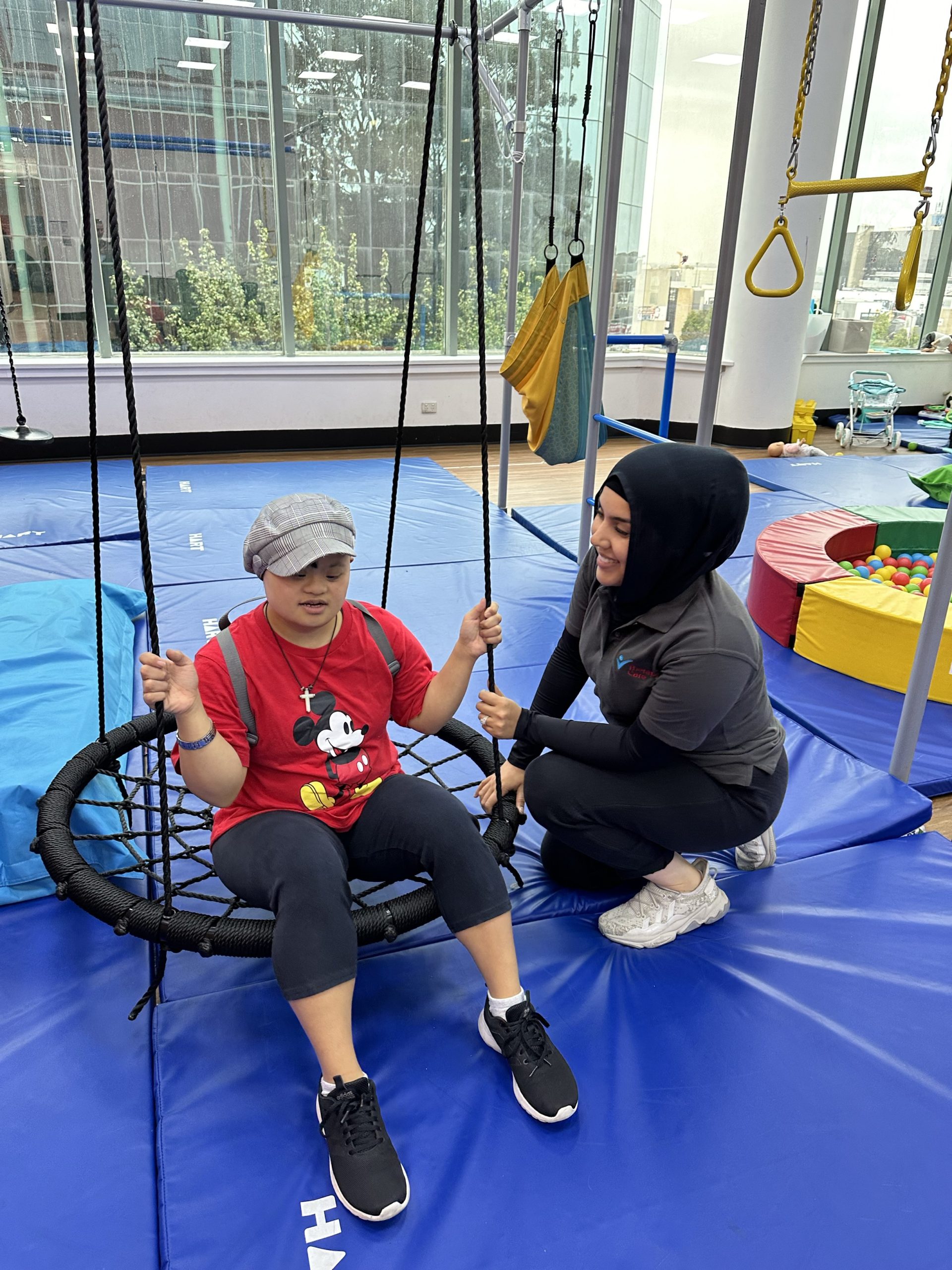
February is a special month – it’s Recreational Therapy (RT) Awareness Month! At Therapy Care, we’re excited to join the celebration of this incredible therapy, our dedicated RT therapists, and the participants who benefit from Recreational Therapy support under the National Disability Insurance Scheme (NDIS).
Why Recreational Therapy Matters
Recreational therapists play a crucial role in helping individuals with disabilities recover and heal through engaging activities. They work towards various goals, including:
✔ Community Entry and Re-Entry (Individual and Group-Based)
✔ Functional Skill-Building (from shoelace tying to numeracy and literacy goals)
✔ Problem Solving and Memory Skills Enhancement
✔ Improving Fine and Gross Motor Skills
✔ Promoting Engagement and Shared Attention
Recreational Therapy Awareness Month serves as a reminder of the importance of participating in activities that aid people with disabilities in their journey to recovery.
The Role of Recreational Therapists
Recreational therapists are skilled professionals who work with individuals of all ages and abilities. They design and facilitate leisure and recreation programs tailored to support, challenge, and enhance each person’s social, spiritual, psychological, emotional, and physical well-being. These therapists are instrumental in healthcare, utilising evidence-based practices to help individuals reach their goals.
Spotlight on Our Talented Recreational Therapists
Therapy Care’s Recreational Therapist, Hussen, shares her journey into Recreational Therapy:
What led you to pursue a career in Recreational Therapy?
I was drawn to Recreational Therapy through my passion for combining leisure activities with reaching goals, creating a holistic approach to health and well-being.
Critical skills for participant support:
My critical skills involve tailoring activities to individual needs, fostering a supportive environment, and adapting plans as necessary.
What I love most about being a Recreational Therapist:
The most fulfilling part is witnessing participants discover joy, resilience, and progress through leisure and recreational activities.
Being part of the Therapy Care community:
Being part of Therapy Care provides a collaborative space where ideas and experiences are shared, enriching our collective knowledge and approach.
Thoughts on Recreational Therapy Awareness Month:
During Recreational Therapy Awareness Month, I celebrate the transformative power of recreational therapy in enhancing lives and promoting overall health and well-being.
Therapy Care’s Operations Manager, Karlie, reflects on her journey:
What led you to pursue a career in Recreational Therapy?
I initially started with a bachelor of health science as a health promotion officer. After meeting with a career advisor, I added recreational therapy as a second major. This combination allowed me to work directly with clients and understand diverse health needs.
Critical skills in daily support:
My skills as a recreational therapist help me make critical decisions around incident management, problem-solving, and understanding NDIS services. These skills support my role as operations manager.
What I love most about being a Recreational Therapist:
I appreciate how it has taught me to work with participants and problem-solve challenges. These skills are transferable and help support the team when needed.
Being part of the Therapy Care community:
Therapy Care understands both client and staffing needs, providing employment opportunities and valuing innovative ideas. The community has an excellent reputation for support provision.
Thoughts on Recreational Therapy Awareness Month:
Recreational therapists can support participants and staff in numerous ways, promoting positive mental well-being through leisure and recreational engagement.
If you’re interested in learning more about our recreational therapy and our wide range of allied health services at Therapy Care, please don’t hesitate to get in touch with our team:
Phone: 1800 861 898
Email: info@therapycare.com.au
